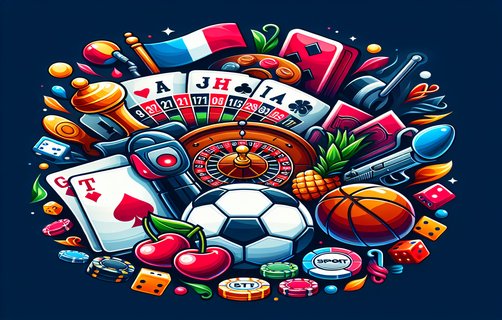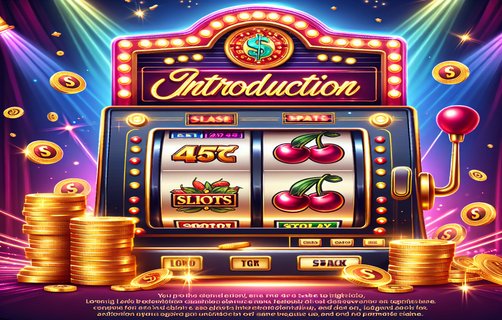Balancing Luck and Skill in Game Design: An In-Depth Analysis
खेल डिजाइन में भाग्य और कौशल का संतुलन: एक गहन विश्लेषण
The intricate relationship between luck and skill in game design significantly influences player experience and engagement. Luck introduces unpredictability, allowing players of varying skill levels to compete on a more equal footing. It can enhance excitement but may also frustrate skilled players, leading to perceptions of unfairness. Conversely, skill-based mechanics reward strategic thinking and expertise, providing a sense of accomplishment when challenges are overcome. The ideal game merges these elements, ensuring that while luck can influence outcomes, the skilled player ultimately prevails over time.
Event zones are critical in shaping gameplay dynamics. They create situations where the rules might change temporarily, forcing players to adapt their strategies. By integrating event zones, designers can maintain player interest and engagement, as each playthrough can offer unique experiences based on how these zones interact with player actions. Such variability can significantly affect game outcomes and encourage repeat play, as players return to master these situations.
The discard pile, often overlooked, becomes an essential strategy tool in card games. It allows players to manage resources wisely, influencing future moves based on what cards are available. Each discarded card can change the state of play, compelling players to act strategically rather than impulsively. This mechanism encourages deeper engagement with the game, as understanding the implications of the discard pile can define a player’s success or failure.
Event cards add another layer of depth, injecting unexpected twists that can dramatically alter game flow. These cards can serve to either challenge players or provide unexpected advantages, reinforcing the need for adaptability. Designers must strike a careful balance in frequency and impact; too many disruptive events may cause frustration, whereas well-placed surprises can enhance replayability and keep the game fresh.

Adjusting objectives serves to reward various play styles, further enriching the gaming experience. When players can adapt their goals based on ever-changing circumstances, it fosters creativity and strategic thinking. Providing alternative pathways to victory encourages players to explore different tactics rather than relying solely on a singular approach. Thus, flexible objectives can lead to a more inclusive gaming environment.
Finally, the role of the builder in game design extends beyond aesthetic choices. Builders shape the mechanics that influence how luck and skill interact, ensuring that a conducive balance exists. They must consider how event zones, discard piles, and event cards intersect, creating a harmonious yet challenging experience. In conclusion, successful game design hinges on understanding and implementing a delicate mix of luck, skill, and player agency, fostering an engaging and balanced gameplay experience that draws players back for more.
खेल डिजाइन में भाग्य और कौशल के बीच जटिल संबंध खिलाड़ी के अनुभव और भागीदारी को महत्वपूर्ण रूप से प्रभावित करते हैं। भाग्य अप्रत्याशितता को पेश करता है, जिससे विभिन्न कौशल स्तरों वाले खिलाड़ियों के लिए एक समान स्तर पर प्रतिस्पर्धा करने की अनुमति मिलती है। यह उत्साही अनुभव को बढ़ा सकता है, लेकिन साथ ही कुशल खिलाड़ियों को निराश भी कर सकता है, जिससे अन्याय की धारणा पैदा होती है। इसके विपरीत, कौशल-आधारित तंत्र रणनीतिक सोच और विशेषज्ञता को पुरस्कृत करते हैं, जब चुनौतियों को पार किया जाता है तो उपलब्धि की भावना प्रदान करते हैं। आदर्श खेल इन तत्वों को जोड़ता है, यह सुनिश्चित करते हुए कि जबकि भाग्य परिणामों को प्रभावित कर सकता है, कुशल खिलाड़ी समय के साथ अंततः विजयी होता है।
ईवेंट ज़ोन खेल की गतिशीलता को आकार देने में महत्वपूर्ण होते हैं। वे ऐसी स्थितियाँ पैदा करते हैं जहाँ नियम अस्थायी रूप से बदल सकते हैं, खिलाड़ियों को अपनी रणनीतियों को अनुकूलित करने के लिए मजबूर करते हैं। ईवेंट ज़ोन को एकीकृत करके, डिजाइनर खिलाड़ियों की रुचि और भागीदारी बनाए रख सकते हैं, क्योंकि प्रत्येक खेल का अनुभव खिलाड़ियों के कार्यों के आधार पर अद्वितीय हो सकता है। ऐसी विविधता खेल के परिणामों को महत्वपूर्ण रूप से प्रभावित कर सकती है और खिलाड़ियों को बार-बार खेलने के लिए प्रेरित कर सकती है, क्योंकि प्रतियोगी इन परिस्थितियों को समझने के लिए वापस आते हैं।
डिस्कार्ड पाइल, जिसे अक्सर नजरअंदाज किया जाता है, कार्ड खेलों में एक आवश्यक रणनीति उपकरण बन जाता है। यह खिलाड़ियों को बुद्धिमानी से संसाधनों को प्रबंधित करने की अनुमति देता है, जो अगले चालों को प्रभावित करता है जो उपलब्ध कार्ड पर निर्भर करते हैं। प्रत्येक फेंका हुआ कार्ड खेल की स्थिति को बदल सकता है, खिलाड़ियों को अस्फुटता के बजाय रणनीतिक रूप से कार्य करने के लिए मजबूर करता है। यह तंत्र खेल के साथ और अधिक गहन सगाई को प्रोत्साहित करता है, क्योंकि डिस्कार्ड पाइल के प्रभावों को समझना एक खिलाड़ी की सफलता या विफलता को परिभाषित कर सकता है।
ईवेंट कार्ड गहराई का एक और स्तर जोड़ते हैं, अप्रत्याशित मोड़ों को पेश करते हैं जो खेल की धारा को नाटकीय रूप से बदल सकते हैं। ये कार्ड खिलाड़ियों को चुनौती देने या अप्रत्याशित लाभ प्रदान करने का कार्य करते हैं, अनुकूलन की आवश्यकता को बढ़ाते हैं। डिजाइनरों को प्रभाव और प्रसार में सावधानी से संतुलन बनाना चाहिए; बहुत अधिक बाधित घटनाएँ निराशा पैदा कर सकती हैं, जबकि ठीक से रखा गया आश्चर्य पुन: खेल्यता को बढ़ा सकता है और खेल को ताजगी बनाए रख सकता है।

लक्ष्यों को समायोजित करना विभिन्न खेल शैलियों को पुरस्कृत करने के लिए समृद्ध करता है, जिससे खेल अनुभव और भी बढ़ता है। जब खिलाड़ी हमेशा बदलती परिस्थितियों के आधार पर अपने लक्ष्यों को अनुकूलित कर सकते हैं, तो यह रचनात्मकता और रणनीतिक सोच को बढ़ावा देता है। विजय के लिए वैकल्पिक मार्ग प्रदान करना खिलाड़ियों को एकल दृष्टिकोण पर निर्भर करने के बजाय विभिन्न रणनीतियों का पता लगाने के लिए प्रेरित करता है। इस प्रकार, लचीले लक्ष्यों से अधिक समावेशी गेमिंग वातावरण की ओर ले जा सकता है।
अंत में, खेल डिजाइन में बिल्डर की भूमिका केवल एस्थेटिक विकल्पों से परे है। बिल्डर उन मैकेनिक्स को आकार देते हैं जो भाग्य और कौशल के बातचीत को प्रभावित करते हैं, यह सुनिश्चित करते हैं कि एक उपयुक्त संतुलन मौजूद है। उन्हें यह विचार करने की आवश्यकता होती है कि ईवेंट ज़ोन, डिस्कार्ड पाइल और ईवेंट कार्ड किस तरह परस्पर क्रिया करते हैं, एक सामंजस्यपूर्ण लेकिन चुनौतीपूर्ण अनुभव बनाते हैं। अंत में, सफल खेल डिजाइन भाग्य, कौशल और खिलाड़ी एजेंसी के सावधानी से मिश्रण को समझने और लागू करने पर निर्भर करता है, एक आकर्षक और संतुलित गेमप्ले अनुभव को बढ़ावा देता है जो खिलाड़ियों को और अधिक के लिए वापस खींचता है।

comments
GamerGeek42
A fascinating read! It really makes you ponder on how luck plays a role in games.
CardMaster91
I love how the article emphasizes the importance of discard piles in strategy.
Strategist007
Event cards can really swing a game! This analysis hits the nail on the head.
LuckiestPlayer
Great insights! Balancing skill with luck is so crucial for game design.
BuilderOfGames
As a game developer, I appreciate the focus on flexibility in objectives.
CriticalThinker
I found the section on event zones particularly enlightening!